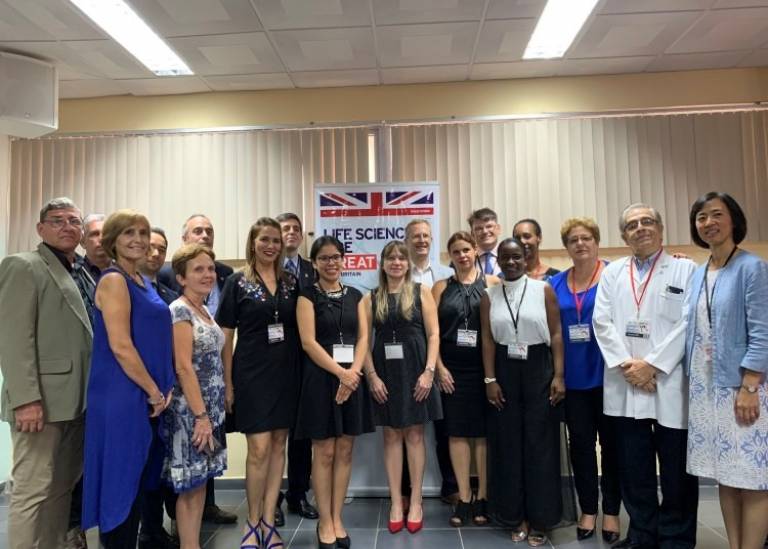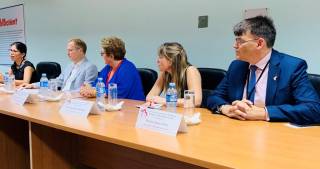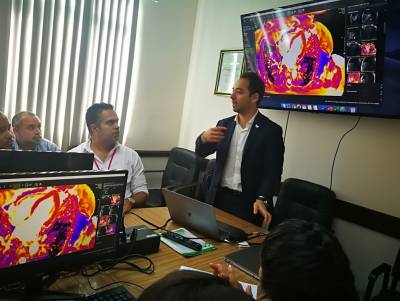Improving the diagnosis of cardiac diseases in developing countries
The Rapid CMR (cardiac magnetic resonance) international research collaboration is focusing on improving the diagnosis of cardiac diseases in developing countries

22 November 2019
In early November 2019, leading UCL academics took part in the first Rapid CMR intervention in the Institute of Cardiac and Cardiovascular Surgery, La Havana, Cuba.
Thanks to a partnership between various institutions and medical professionals - including cardiologists, radiologists, technologists and physicists – the collaboration is swiftly gaining ground.
Its ultimate aim is to fully embed rapid CMR scans within clinical care, training and mentoring in low-to-middle income countries so that this becomes a self-sustaining, essential service.

Several academics from UCL took part – Professor James Moon, Dr Katia Menacho and Dr Andreas Seraphim from the Institute of Cardiovascular Science (ICS), and Dr Sam Mohiddin from Barts’ Heart Centre, Saint Bartholomew’s Hospital.
Under the leadership of Dr Aylen Perez and Professor Amalia Peix (Institute of Cardiac and Cardiovascular Surgery), and coordinated by Dr Katia Menacho, a PhD student at ICS, the event was also supported by the Outreach Committee of the Society of Cardiovascular Medicine, and the British Embassy, Health Minister and local scientific societies in Cuba.
The project also received funding from the Peruvian Science Council, Fondecyt – Concytec, under the leadership of Professor Moon.
The first stage of the project comprised the delivery of an education and training program offered over two and a half days, with 178 participants (cardiologists, radiologist and technologists) from around Cuba, including La Havana, Matanzas, Villaclara, Camaguey and Santiago de Cuba.
The program consisted of theory sessions, hands-on training and the discussion of clinical cases. In the weeks following the conference, more than a hundred scans with rapid CMR protocol were set to be completed in Cuba. The program also saw a visit from the British Ambassador in Cuba, his excellence Dr Antony Stokes.

 Close
Close

